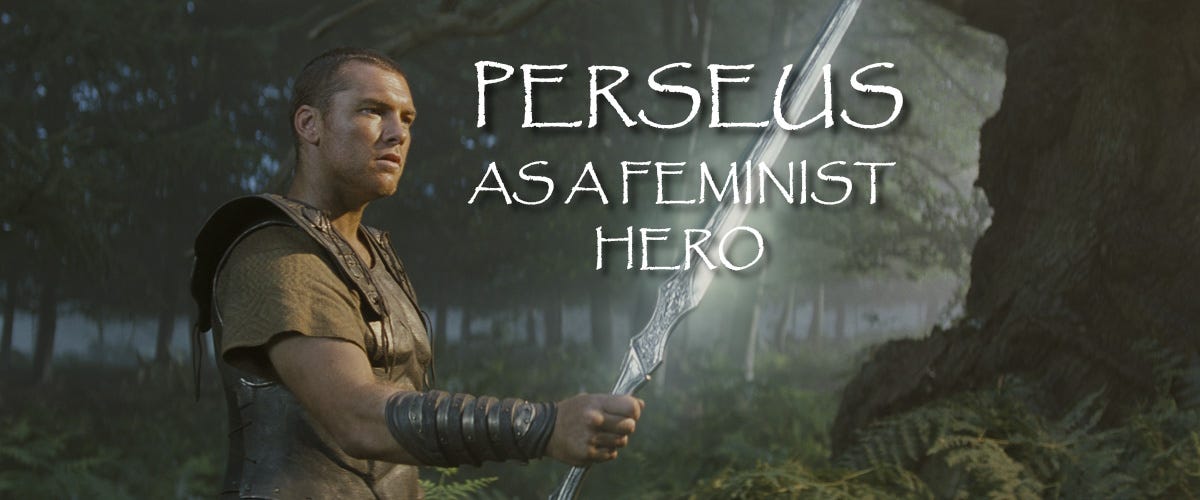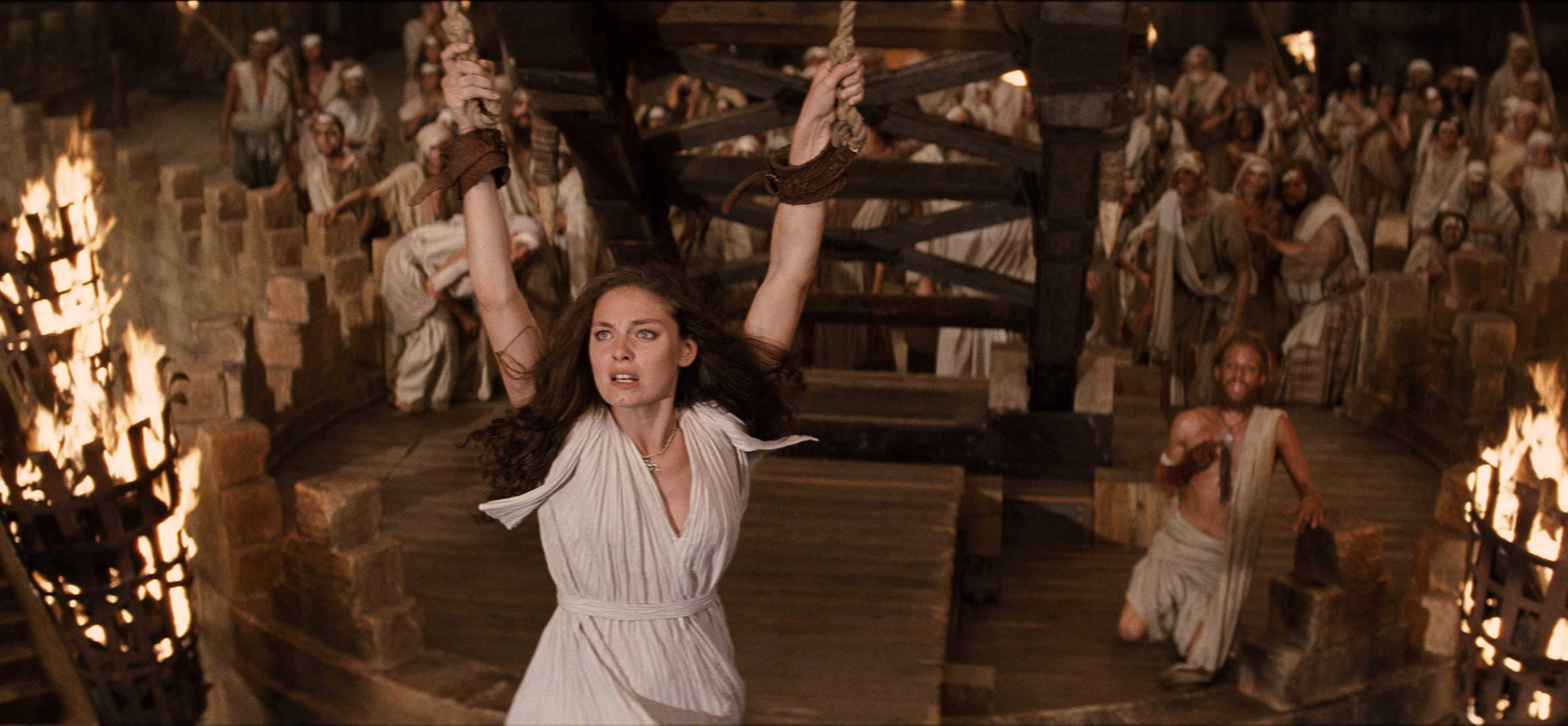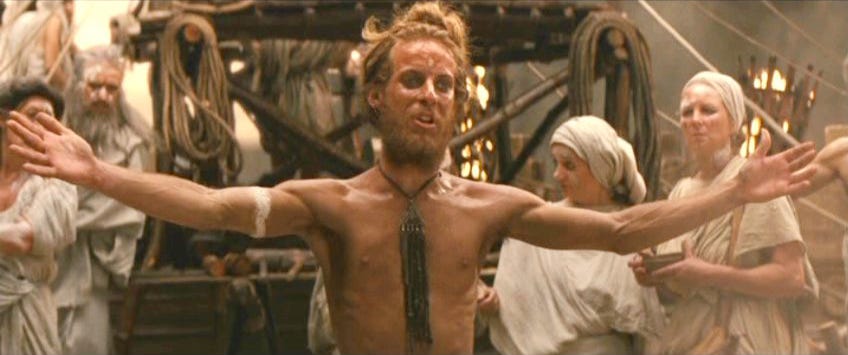This piece was originally published in 2015. It’s my own interpretation of the symbolism in the Perseus myth, and especially the 2010 film. Spoilers for that, by the way. It gets such a bad rap…
I love the Perseus myth. There are so many layers to it. So when Clash of the Titans came out in 2010, I was right there in the theater.
I’m not going to say it was the best movie ever made. It doesn’t even follow the story of the actual myth. There are a lot of changes.
But one thing about myths is that they morph over time according to who is telling them. This is why we find a lot of different versions of the same myths. There’s no single correct version.
So the 2010 movie is our culture retelling the Perseus myth, reflecting our own challenges and values.
I like it because of the way it demonstrates various layers of the archetypes in the myth. I especially like the way that this version of the Perseus story focused on how he’s a feminist hero.
Yes, we can see Perseus as one of the feminist heroes in mythology. (Odysseus is another one.) He’s also about challenging authority, and that came through really strongly in the 2010 movie too. But here I’m going to talk about the feminist angle.
***
How is Perseus a feminist hero?
First, let’s talk about his mission.
The city of Argos is right on the sea, and there’s a princess living there named Andromeda. She’s generous and humble. She considers herself a servant of her people. She’s altruistic, down-to-earth, and just generally really admirable. She’s also so beautiful that her mother boasts she’s more beautiful than Aphrodite.
Bad move.
Hades appears. (Not Aphrodite, for some reason…) He condemns the mortals’ arrogance and sentences Argos to be destroyed by a terrible sea monster, the Kraken. He does give them a way out, though: they can sacrifice Andromeda to the Kraken and everything will be okey-dokey.
Except for Andromeda. She’ll be dead.
Enter Perseus.
His mission is to save Argos AND Andromeda.
Pretty much the only way to do that is to destroy the Kraken.
And pretty much the only way to do THAT is to slay the gorgon Medusa, whose gaze can turn anything to stone.
Okay, great. So what’s this about feminism now?
To understand that, we have to know who Medusa is and what she represents.
In the movie, the character Io explains what happens to Medusa.
Io is an immortal woman, cursed with eternal life because she rejected the god Poseidon’s advances.
So here’s Medusa’s story in a nutshell: Medusa was once a beautiful woman, and she caught the attention of Poseidon. She wasn’t interested in him, but she wasn’t as successful as Io in refusing his attention. Poseidon raped her.
Medusa called out to the goddess Athena for help, but Athena was kind of disgusted by the whole thing. Not only did she not protect Medusa, she punished her by turning her into an immortal gorgon—half human, half serpent—and condemning her to live in a cave in the underworld for the rest of her days.
Archetypally, the underworld usually symbolizes the subconscious. It’s where things go when we don’t want to deal with them.
So down goes Medusa, because nobody likes to think about the time the god of the sea raped the pretty girl from the village.
Along with her, Medusa takes her rage. She is a product of trauma and rape. She is not friendly to men. Her wrath is terrible. (It’s the same wrath that Dark Artemis feels. It is vengeful and hateful toward men.)
It’s SO terrible that even looking Medusa in the face—that is, coming face to face with the horror of what she endured—will turn a man to stone. And only men are allowed to venture into her caverns. That way, she’ll never harm a woman.
So that’s Medusa and what she symbolizes. (In this version of the myth, anyway. There are others.)
Medusa is the face of Dark Artemis, of the angry feminine betrayed by the masculine and seeking vengeance. (The feminine is not a benign force in myth. Sure, it can be sweet and nurturing, but it can also get every bit as nasty and destructive as the masculine.)
Andromeda, however, represents a different aspect of the feminine. She’s the innocent, pure feminine. The beautiful, nurturing, altruistic archetype that brings love, peace, and understanding. She acts as a unifying force. She loves men just as she loves all people.
Andromeda inspires admiration because she is simply a good woman.
***
What about that Crazy Guy?
There’s another character in this movie—a religious fanatic who insists they should totally sacrifice Andromeda to save Argos.
Why should she get special treatment?
Why should her one life be placed above the lives of all the citizens?
It would seem that he has a point.
Except for the fact that he’s insane.
What’s the deal with this character? Why is he even here? Is he necessary? I think it’s another use of symbol and archetype. On one hand, this crazy dude wants to honor the gods and do whatever they say, so he’s a counter to Perseus who challenges authority.
I think this crazy dude also represents the insane masculine—the self-righteous, violent masculine who would sacrifice beauty, kindness, and love. He doesn’t recognize Andromeda (and everything she represents) as intrinsically valuable.
Later, I’ll show how Perseus accepts his feminine side and learns from it. Now, I’ll point out that this crazy dude doesn’t do that. He wants to destroy the good feminine and everything she represents.
*
So Perseus has to go slay Medusa.
To do this, he has to go to the underworld—to venture into the subconscious and face some dark shit.
Fortunately, the immortal woman Io (say EYE-oh!) guides him.
Io herself is an interesting choice on the part of the writers and director (Louis Leterrier).
They pretty much made her up.
Io exists in Greek mythology, but her story isn’t anything like this character’s. In the 2010 movie, she’s Perseus’s love interest.
In the original myths, Perseus gets together with Andromeda.
Even in the 2010 movie, Andromeda would have been a great choice for a love interest. She’s beautiful, good, and provides powerful motivation for Perseus’s journey. So why did the director decide to ignore this very convenient love interest and invent an entirely new character for the purpose?
I think (and this is totally my interpretation) it’s because Leterrier wanted to include several feminine archetypes in this story.
Io isn’t just Perseus’s guide. She is symbolic of something in this movie. She represents the Divine Feminine, and she serves as Perseus’s anima—his feminine side. She is his heart and his intuition. On more than one occasion, she tells him exactly what he needs to do, where he needs to go, how far he should push, and when he should pull back.
The director could have just had Perseus use his logic to figure this out. Yeah, logic is often considered a masculine archetypal trait, but Athena’s pretty logical. She could’ve helped Perseus out.
But instead, they chose to have Io give him directions.
She even teaches him how to fight Medusa.
Io, being the eternal feminine, has insight into Medusa’s plight and her behavior. She knows how the angry, wounded feminine will lash out against a man—and she wants to protect this particular man against that anger. So she teaches him how to fight Medusa.
“Don’t look at me,” she says, pretending to be the gorgon, trying to get him to sense where she’ll strike from. Again, she is guiding him to use his intuition instead of his physical eyes.
Here’s a short clip of that scene. (I wish it was longer!)
Then fight gets a little—ahem—heated, as we might expect between the hero and his feminine guide/side. Perseus is hot with battle and with lust, but now is not the time for him to give in to his animal nature.
Again, Io guides him.
She places her hand over his heart and tells him, “Ease your storm.”
Perseus closes his eyes and masters himself.
It is hugely important for this particular hero to honor the feminine, which is why Perseus listens to her and doesn’t push her sexually. If he were the kind of man who would say, “Aw, come on baby!” then Medusa would be able to kill him.
But he’s not.
He’s in touch with his own feminine aspect, he listens to her, and that’s the only thing that will allow him to slay Medusa.
*
In the 1981 version of the film, Perseus also had access to his anima and feminine guidance. He had that little animatronic owl, given by Athena.
So epic.
Rumor has it that in the 2010 version, Sam Worthington (who played Perseus) accused the little mechanical owl of trying to ruin his career and refused to work with it. (Hahahaha)
I do think its presence in this movie would’ve been a little superfluous.
*
So plot things happen, and Perseus slays Medusa by cutting off her head without looking at her.
I’m always arrested by the look on Medusa’s face—that is, on her severed head—at this moment. The director could have made her face hideous. He could have made her look angry and monstrous. Instead, she is beautiful, and her expression is broken, vulnerable, and a little confused. It’s like she doesn’t understand why all this had to happen. Why is the world so cruel to women? Why was she punished while defending herself? Again?
Anyway, Perseus takes her poor, abused, traumatized, venomous head, and he flies back to Argos on his magical flying horse and shows that severed head to the Kraken, which turns to stone. Even the freakin’ Kraken can’t face what’s been done to Medusa.
Andromeda is saved from being sacrificed.
There is a time and place to sacrifice the sweet, nurturing feminine—like before your army goes off to war for 10 years, when you can’t bring your sweetness with you—but Argos was not the time or place to make that sacrifice.
Saving Andromeda was important. It means the people stayed attuned to their goodness and sense of care for one another.
I think my favorite thing about this version of the Perseus myth is that the hero has used the rage of the abused feminine to save the innocent feminine from abuse.
It took a hero to do this—to access his feminine guidance, face what had been done to Medusa, and to channel that rage to a place of service instead of hating or fearing it. It’s not just about him wanting to save his woman, but about wanting to save what his woman symbolizes. And myth is all about symbols.
So that’s my feminist interpretation of Clash of the Titans. Am I reading into things? Maybe. But I reserve the right to interpret things through my own perspective.
And this is why I can’t turn this movie off anytime it’s on TV, despite the stupid scorpion fight.
*
I’ve got a lot to say about Medusa. I’m not sure being turned into a gorgon was actually a curse. I’ll share more in an upcoming post. Subscribe to be sure you get it!









